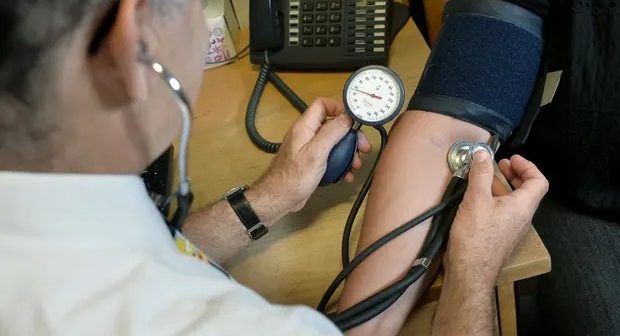GPs are failing to urgently refer patients with “red flag” signs of suspected cancer to a specialist, research suggests.
Six out of 10 patients in England with key symptoms indicating possible cancer did not receive an urgent referral for specialist assessment within two weeks, as recommended in clinical guidelines, according to a new study.
Nearly 4% of these patients were subsequently diagnosed with cancer within the next 12 months. The findings were published in the journal BMJ Quality & Safety.
In the study, researchers analysed records from almost 49,000 patients who consulted their GP with one of the warning signs for cancer that should warrant referral under clinical guidelines.
They found that six out of 10 patients were not referred for cancer investigation within two weeks of the first visit. Of the 29,045 patients not referred, 1,047 developed cancer within a year (3.6%).
Early diagnosis and prompt treatment is crucial to survival chances. Every four-week delay in cancer treatment increases the risk of death by 10%.
The study was led by the University of Exeter, working with University College London, and funded by Cancer Research UK. Researchers studied records from the Clinical Practice Research Datalink, as well as data on visits to hospital and cancer registration data between 2014 and 2015.
They looked at patients who had reported cancer warning signs to their GP for the first time. The “red flag” symptoms included blood in urine, a breast lump, problems swallowing, iron-deficiency anaemia and postmenopausal or rectal bleeding.
The lowest referral rate was for problems swallowing, at just 17%, and the highest was for breast lump, at 68%.
“The number of patients who go on to be diagnosed with cancer when they are not urgently referred indicates that following the guidelines more strictly would have significant benefits,” the researchers wrote.
The lead author of the study, Dr Bianca Wiering, said: “It’s important to note that this issue does not just lie with GPs – we also need to ensure the services to provide the tests needed on referral are well resourced, which we know is currently not always the case.”
Prof Martin Marshall, chair of the Royal College of GPs, said: “GPs follow clinical guidance to ensure that referrals are appropriate and are sensitive to the risks of over-referring patients because this would risk overloading specialist services and would not be helpful to patients or the NHS.
“GPs find themselves in a position where they are criticised for referring both too much and too little: what would help is better access to diagnostic tools in the community and additional training to use them and interpret the results, so that better informed referrals can be made.”
Separately, the charity Breast Cancer Now has warned that almost 12,000 women could be living with undiagnosed breast cancer after missing out on NHS screening because of the pandemic.
Source: The Guardian

